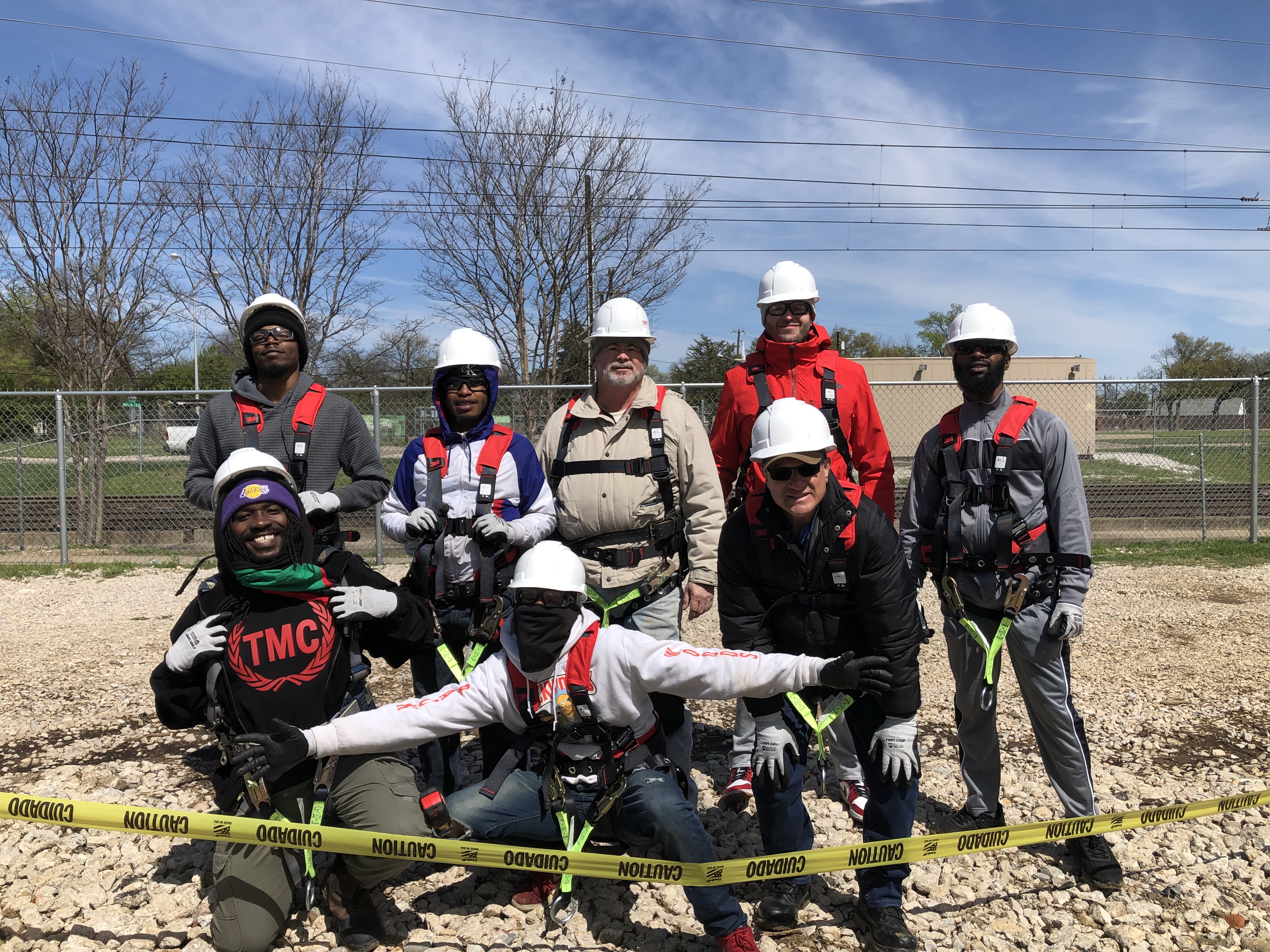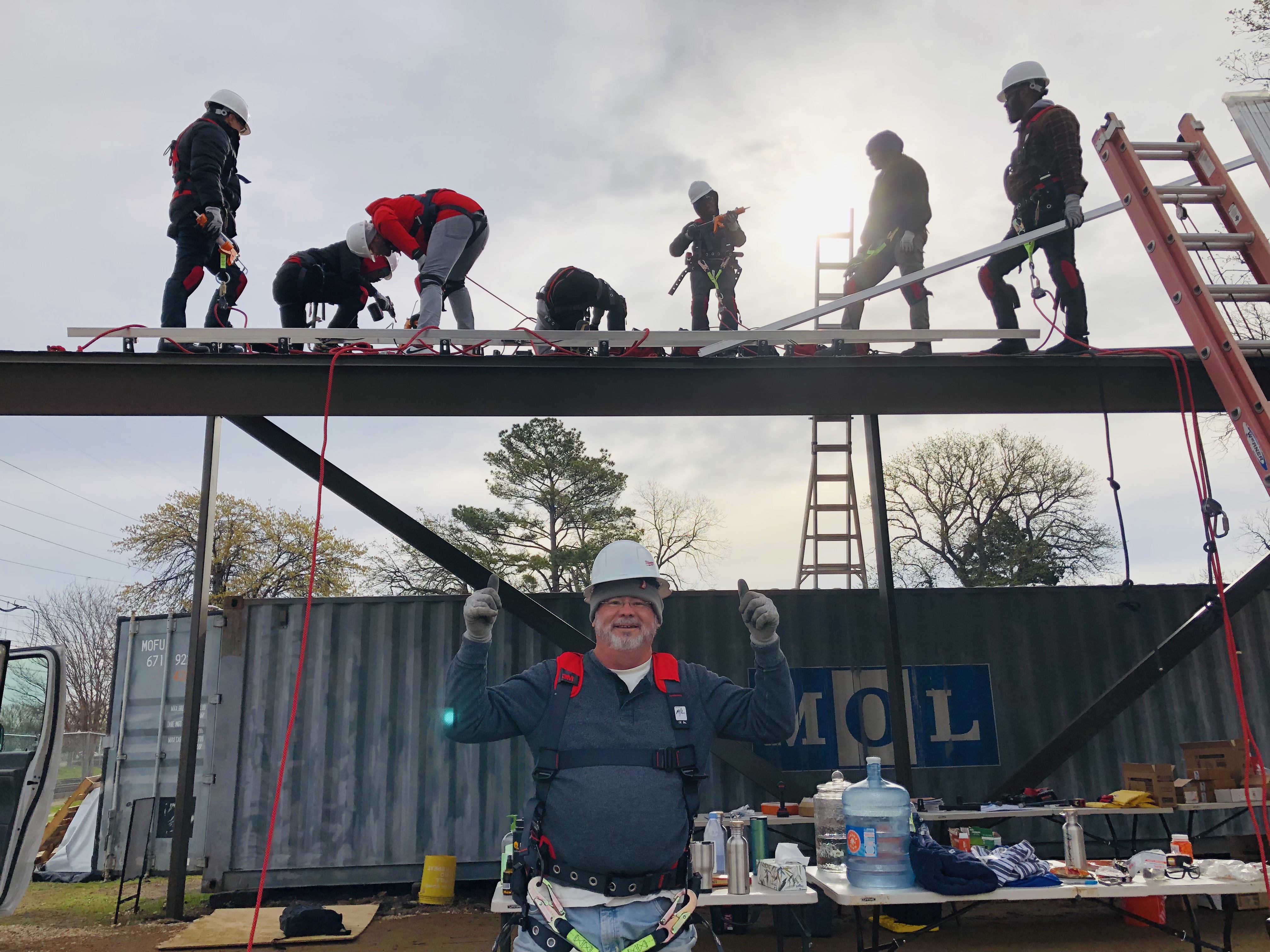Since 2016, the not-for-profit Green Careers Dallas (GCD) has been helping those in greatest need of access become part of Texas’ rapidly growing solar workforce. Under the visionary leadership of Tracy Wallace, disadvantaged communities in Dallas now have opportunities for social, environmental and economic justice through renewable energy.
“The inspiration to recruit hard-to-employ yet highly-motivated individuals for solar training came from Catching the Sun, a 2015 documentary on the solar industry,” said Wallace. “It featured unemployed workers in Richmond, California who were being trained for careers in the solar industry and I wondered why we couldn’t do that here in southern Dallas.”
South Dallas is an underserved inner-city community. Per capita income in South Dallas is 45% lower than the national average while the median household income in South Dallas is 37% lower than the national average. The unemployment rate in South Dallas is 33% higher than the national average, and the poverty level in South Dallas is 100% lower than the national average. Both homeownership and vehicle ownership rates are low, and the area is a food desert.

“We recruit individuals who are less than 200% of federal poverty-level income,” said Wallace. “That includes un- or under-employed, returning citizens and veterans. There’s no cost for training these populations. GCD is the only place in Dallas with this kind of training. We’re committed to helping our students succeed.”
From 2017 through 2019, GCD has been combining technical classroom training with practical hands-on lab learning and vital safety information. When the pandemic hit, GCD changed its model to an 18-hour 100% hands-on training including rooftop training in safety harness systems. All GCD students are required to take the OSHA 10 training, a 10-hour training that teaches basic safety and health information to entry-level workers in construction and general industry.
Through a contract with the Texas State Energy Conservation Office (SECO), GCD and The Texas Solar Energy Society (TXSES) are developing curriculum and outreach to low-to-moderate income communities (LMI) expanding GCD’s reach to Austin and Houston. From Classroom to Career: Building the Pipeline for Texas’ Clean Energy Workforce will engage with students, trainers, and teachers to define the future of clean energy education and training. The training will allow students to gain access to entry and mid-level positions with solar and other clean energy businesses.

“These state funds will enable TXSES to leverage its renowned educational and outreach expertise to build a statewide training and education framework that will result in a well-trained, highly-qualified solar energy workforce of sufficient size and diversity to meet the projected needs of high penetrations of distributed solar energy in Texas,” said Patrice Parsons, Executive Director Texas Solar Energy Society.
The SECO initiative is ambitious. According to Wallace, GCD will hold a total of 12 trainings –four each in Austin, Dallas and Houston over the next 30 months.
Training has already begun in Dallas. To help students with hands-on skills, each location must build a training rooftop. “Each training can host up to 10 students,” said Wallace. “Our next training will be bilingual, offered in both English and Spanish, as required by SECO.”
Since 2017, GCD has trained 55 LMI individuals in entry-level solar PV installation and solar safety with a 60% placement rate, although not all have entered the solar workforce. “Lack of transportation is probably one of the biggest challenges for our students,” she said. “Employers have a difficult time retaining these entry-level employees because of transportation issues.”
According to Wallace, access to opportunities and basic services is what’s missing in these communities: access to transportation, health care, safe housing and living wage work in growing industries such as solar installation. “Our very first instructor, himself from an LMI community in California, told us that there is a brilliance and resilience of those living in our low-income neighborhoods. What’s missing is access to opportunities. We’re here to provide access to living wage opportunities in the solar workforce with pathways for career advancement,” she said.
To learn more about Green Careers Dallas, click here.
